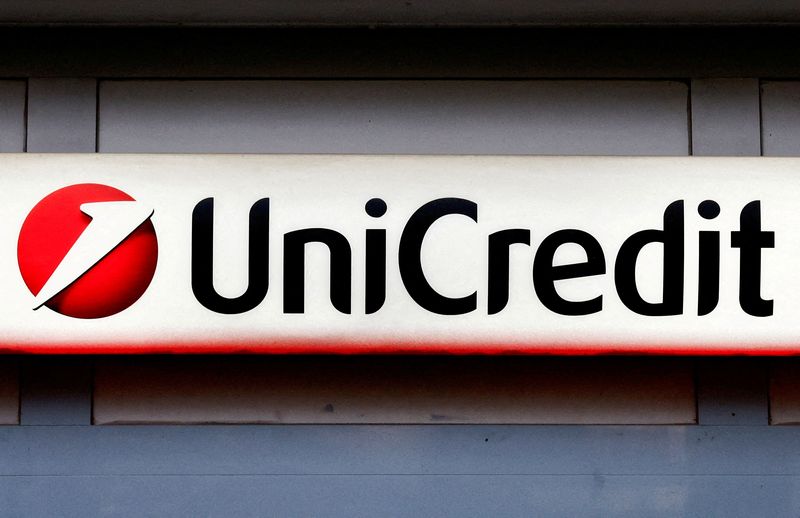By Giuseppe Fonte
ROME (Reuters) -Italy has responded to European Union queries on the conditions it has imposed on UniCredit’s bid for Banco BPM by saying domestic savings are a matter of national security, sources familiar with the matter told Reuters.
The European Commission had asked Rome for details about the terms that Giorgia Meloni’s government set in authorising UniCredit’s buyout offer for smaller lender BPM.
The EU’s scrutiny of the way Italy uses its ‘golden power’ legislation to shield key assets could lead to an infringement procedure.
To clear the deal, the Italian government told UniCredit to halt its activities in Russia, except for payments, by early 2026 and to refrain from lowering BPM’s loan-to-deposit ratio for five years.
The EU, which promotes free movement of capital within the bloc, objected that it was unclear how an Italian lender buying a domestic rival could threaten the country’s security and therefore be subject to golden power conditions.
Italy has responded that more than 60% of UniCredit’s capital is held by non-EU investors, the sources briefed on the contents of letters Rome exchanged with Brussels told Reuters.
With a large public debt to refinance each year, Rome considers it important that the allocation of savings remains in domestic hands.
Italy also argued that a government’s duty to defend a country’s financial security applies regardless of whether a merger deal potentially affecting national savings involves a foreign player or is fully domestic, the sources said.
The European Commission was not immediately available to comment.
Born to fend off unwelcome offers from outside the EU bloc, golden powers were expanded during the COVID-19 pandemic to shield strategic companies as their valuations crashed.
Some member states, including Italy, have applied the legislation to the banking sector, even though EU rules hand supervisory powers over banks to the European Central Bank (ECB).
UniCredit’s swoop on BPM, which derailed Rome’s plans to combine BPM with state-backed Monte dei Paschi di Siena, is part of a wave of takeover bids sweeping Italy.
Italian Economy Minister Giancarlo Giorgetti said last month he would resign if he were overruled on UniCredit, after the government-imposed terms for the bid split the ruling coalition. Meloni has not recently spoken publicly on the issue.
(Reporting by Giuseppe Fonte, editing by Valentina Za and Gavin Jones)
